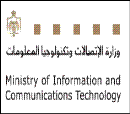E-Government is the national program initiated by his Majesty King Abdullah II. Its purpose is to enhance the performance of government in terms of service provision, efficiency, accuracy, time and cost effectiveness, citizen satisfaction, cross-governmental integration and elements related to style the government and its perception. The key emphasis of the e-Government program has started with the re-engineering of processes to become more efficient, as well as human performance development and eventually, deployment of best practices using the latest technologies as a tool to enable government stakeholders to implement the new processes. The Ministry of Communications and Information Technology (MoICT) has been assigned to take the lead in coordinating the efforts of implementing the e-Government Program and providing support where needed in the implementation.
